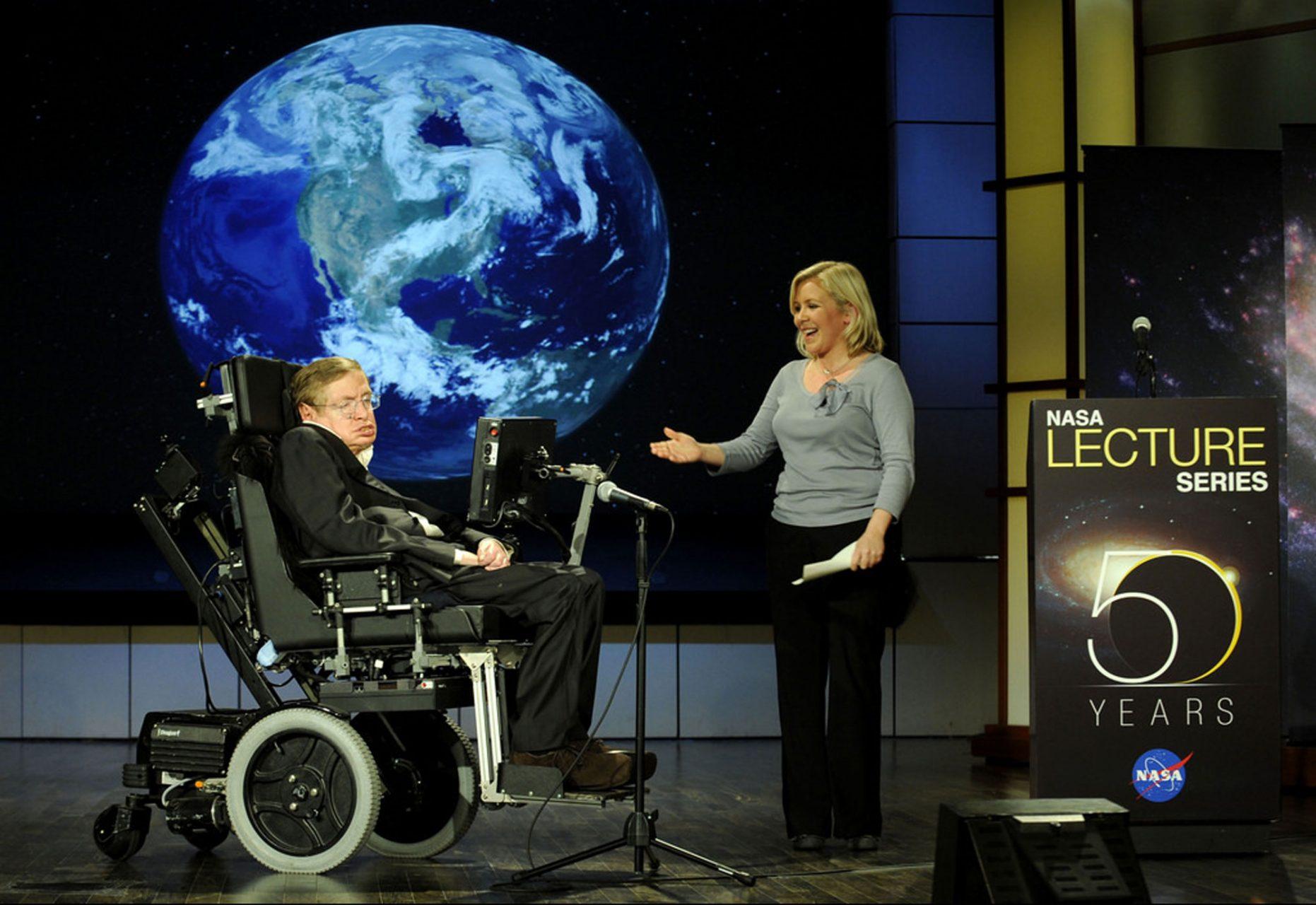World-renowned physicist Stephen Hawking, best known for his work with black holes and relativity, passed away at his home in Cambridge, England, on March 14.
Hawking was born on Jan. 8, 1942, exactly 300 years after the death of Galileo, and in his 76 years of life, Hawking sought out the meaning of the universe and became, so he claimed, the master of black holes.
“They’re named black holes because they are related to human fears of being destroyed or gobbled up,” Hawking said. “I don’t have fears of being thrown into them. I understand them. I feel in a sense that I am their master.”
One of Hawking’s most well-known discoveries was the assertion that black holes emit a kind of electromagnetic radiation, a form of energy now known as “Hawking radiation.”
“When Stephen Hawking combined the theory of black holes, which is general relativity, with quantum mechanics, he discovered that black holes actually emit electromagnetic radiation, light. That was revolutionary,” Richard Gray, physics professor, said.
Hawking was respected not only for his revolutionary research, but for his ability to bring an understanding and appreciation of science to the public.
“He was really good at taking complex ideas and making them so anyone can understand them and share in wonder of the universe together,” Brad Conrad, associate physics professor, said.
Hawking published 15 books over the course of his career.
Five of them are children’s books, written with his daughter Lucy, which explore Hawking’s ideas on cosmology through the galactic adventures of protagonist George and his friends.
In 1988, Hawking wrote “A Brief History of Time: From the Big Bang to Black Holes,” a book intended to help non-scientists understand some of the most complicated questions of our universe: where did the universe come from, and how and why did it begin?
More than 10 million copies of “A Brief History of Time” have been sold, according to Time.
Through his career, Hawking became somewhat of a pop culture figure, appearing in everything from “The Simpsons” and “The Fairly Oddparents” to “Star Trek: The Next Generation.”
Ray Ruble, an emeritus professor who has taught philosophy at App State for 48 years, said it was not his intelligence but his sense of humor through adversity that brought Hawking international fame.
“Hawking was the kind of person who had this wicked sense of humor, and he made a lot of lemonade out of the lemons he was dealt,” Ruble said. “He was not the world’s greatest genius after Einstein, it’s just that he was an extremely smart person. There are plenty of these guys running around, statistically. They just don’t have the same kind of background and rockstar exposure.”
Hawking was well known for his triumph in the face of physical disability. Hawking was diagnosed with ALS, also known as Lou Gehrig’s disease, in 1963. The diagnosis was shortly after his 21st birthday, and he was given just a few years to live.
In the 55 years since his diagnosis, Hawking not only outlasted his prognosis by half a century but made breakthroughs in the field of theoretical physics, traveled to every continent, fathered three children and received thirteen honorary degrees.
Hawking was also an outspoken atheist; he called philosophy “a dead field of study” and heaven “a fairy story.” Like many famous scientists before him, such as Bruno and Galileo, Hawking questioned and denied many tenets of religion and philosophy, asserting that religion and science could not be reconciled.
“It’s like trying to reconcile microphysics and macrophysics,” Ruble said. “How can you integrate things without abandoning your major assumptions in terms of each?”
Despite Hawking’s outspoken views against philosophy, App State philosophy professor Rick Elmore said the nature of philosophy and cosmology are often greatly intertwined. Philosophy and cosmology both seek answers to the impossibly large questions of how and why the universe came to be.
“I think that what’s sad about his rejection of philosophy is that actually, cosmology and theoretical physics are the place with those kinds of speculations and the freedom to speculate within a fairly broad set of rules; that’s what (philosophy) does,” Elmore said. “I would see him in many ways as a philosopher, even though he wouldn’t see himself that way.”
Elmore urged that, moving forward, public intellectuals like Neil Degrasse Tyson come to accept interdisciplinary studies and understand that multiple fields are often necessary to answering questions like these.
“It seems like we have space to bring in lots of different perspectives to address the challenges of understanding what kind of creature we are and what the nature of reality is,” Elmore said. “I think the goal of his project, unfortunately, and his rejection of philosophy are kind of at odds, in that he wants to understand reality, but to do that we need something more than physics.”
Although he believed in no afterlife, Hawking looked at death fearlessly, perhaps with the same boldness with which he looked at black holes.
“I’m not afraid of death, but I’m in no hurry to die,” Hawking said in a 2011 interview with The Guardian. “I have so much I want to do first.”
And do, he did.
Story by: Ashley Goodman, A&E Editor
Photo provided by Photos for Class
Featured Photo Caption: Stephen Hawking speaking at the NASA Lecture Series in 2008.











